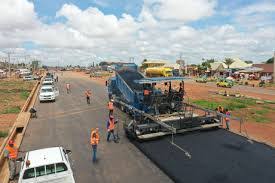The Federal Government needs to spend around ₦880 billion every year to maintain the country’s federal road network properly, according to Minister of State for Works, Mohammed Goroyo. However, the government has been falling short of this requirement for years due to poor budget allocations and failure to implement a critical law that provides a dedicated road maintenance fund.
Goroyo disclosed this on Monday during an investigative hearing held by the House of Representatives Ad-Hoc Committee probing the implementation and remittances of the five per cent road user charge for the Federal Road Maintenance Agency (FERMA). The hearing took place in Abuja.
In his presentation, the minister pointed out that FERMA, which is responsible for maintaining Nigeria’s vast road network, only received ₦76.3 billion in 2023, ₦103.3 billion in 2024, and is expected to get ₦168.9 billion in 2025—far below the ₦880 billion annual requirement.
“These figures, though gradually increasing, remain far below the necessary threshold for sustainable road maintenance,” Goroyo said. “This persistent funding gap has forced FERMA into a reactive mode of maintenance rather than a preventive approach. The consequences are glaring—deteriorating road conditions, higher repair costs, and more disruptions for commuters and businesses.”
He said Nigeria urgently needs a proactive strategy backed by adequate and reliable funding. He urged that the five per cent user charge on petroleum products—legally mandated since 2007—must be properly implemented and remitted to serve as a consistent source of funds for road maintenance.
Echoing these concerns, the Managing Director of FERMA, Chukwuemeka Agbasi, confirmed that the road user charge template was never implemented by the now-defunct Petroleum Products Pricing Regulatory Agency (PPPRA), which was replaced by the Nigerian Midstream and Downstream Petroleum Regulatory Authority (NMDPRA).
“The five per cent user charge, as enshrined in the FERMA Act, was designed to serve as a sustainable funding mechanism. However, for years, FERMA has grappled with severe funding inadequacies, hampering our ability to maintain Nigeria’s vast road network effectively,” Agbasi said.
He stressed that proper road maintenance is more than a policy—it is a national priority. “Our roads are the lifelines of commerce and social integration,” he added.
Speaker of the House of Representatives, Tajudeen Abbas, who declared the hearing open, recalled that on 19th March 2024, the House passed a motion questioning the non-remittance of the five per cent user charge meant for FERMA under the 2007 FERMA Amendment Act.
According to him, the National Assembly has a constitutional duty under Sections 88 and 89 of the Nigerian Constitution to carry out thorough investigations on the matter.
“We owe Nigerians the obligation to determine the extent of the violation of the law, the amount of money unremitted, and who is responsible for the non-implementation,” Abbas said.
He further emphasized that the hearing should not only expose past lapses but also recommend effective ways to prevent future abuse of the law and ensure smooth access to funds by relevant agencies.
Chairman of the Ad-Hoc Committee, Francis Waive, who is also the Chairman of the House Committee on Rules and Business, clarified that the five per cent charge is not a new policy. According to him, it has been part of the law since 2007 and does not require a price increase on petroleum products.
“This investigation is not about introducing new levies or changing the law. We are simply trying to ensure that existing laws are respected and implemented,” Waive said.
He assured Nigerians that the House of Representatives is committed to making sure that all laws passed by the National Assembly are complied with, both by individuals and government agencies.
The investigative hearing is expected to continue in the coming days as lawmakers dig deeper into why the five per cent user charge has not been enforced for nearly two decades, and how that has impacted Nigeria’s deteriorating road infrastructure.
